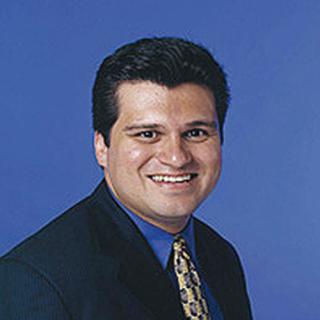
For journalists, dishonesty is not the best policy
MORE IN THIS SECTION
The dustup over an offensive rant by a comedian at the annual White House Correspondents' Association dinner should prompt journalists to take a hard look at themselves and their profession, and ask what has become of both in the era of Donald Trump.
For one thing, members of the media should investigate whether some of them have picked up bad habits from the people they cover.
Like how to lie. Enduring falsehoods is something that I have in common with my dad, a retired cop: People lied to us all the time, usually to get out of a scrape. It makes you cynical and distrustful -- especially of the powerful, who sometimes have a lot to lose from telling the whole truth.
In the recent film "The Post," Washington Post Executive Editor Ben Bradlee -- played by Tom Hanks -- says about officials in the Nixon administration who misled the public about the Vietnam War: "The way they lied, those days have to be over."
Of course, those days are not over. Politicians in both parties still lie with ease and often without a second thought.
Yet what happens when the "lied to" become the liars? It has been my experience -- over three decades of working in the media -- that reporters, producers and anchors can fib with the best of them. And if you can't trust the media, whom can you trust?
Legendary newsman Walter Cronkite -- once regarded as "the most trusted man in America" -- couldn't get a job today. The idea that the public could put even an ounce of trust in the media seems quaint. Cable hosts have gone from covering the story to becoming the story.
And now it appears that some of them are not being totally honest and transparent with their audience, which only increases public distrust and feeds the perception that Big Media has its own agenda. One thing I hear from readers is that the media often talk down to them or keep them in the dark. Well, dishonesty is a clear sign of disrespect. And it sure doesn't produce any light.
Of all people, journalists can't afford to play fast and loose with the truth. It hurts our credibility, which in turn destroys our effectiveness. After all, what's the point of having a voice if no one believes a word that comes out of your mouth?
The latest round of media offenders who have cut corners includes Fox News' Sean Hannity, MSNBC's Joy Reid, and CNN's Jake Tapper. They all seem to have been less than forthcoming -- about their relationships, their personal views, the credibility of their sources, or their own biases.
RELATED CONTENT
Hannity interviewed and defended Trump's personal lawyer, Michael Cohen, without telling us that he was also one of Cohen's clients. The conservative host -- who is not a journalist but sometimes likes to play one on television -- also tried to argue that Cohen's work for him was limited to real estate deals. But that assertion unraveled when Hannity acknowledged that Cohen's work for him went beyond real estate.
These details would have been good to know when Hannity was registering outrage over what he considered unfair and heavy-handed treatment of Cohen by special counsel Robert Mueller.
Confronted with a series of ugly and homophobic entries that were posted on her personal blog from many years ago, Reid offered an elaborate take on "the dog ate my homework." With Reid, it was something akin to: A homophobe hacked my blog. Nearly a week after the blog posts came to light, the liberal host acknowledged that there didn't appear to have been a hacking and told her viewers: "I genuinely do not believe I wrote those hateful things. But I can definitely understand, based on things I have said and have written in the past, that some people don't believe me."
Less defensiveness and more contrition could have done wonders.
Finally, Tapper deserves scrutiny for not being upfront about his relationship with a controversial figure: James Clapper. According to a newly declassified congressional report on Russian meddling in the 2016 election, the former director of national intelligence leaked and lied. In early January 2017, Clapper allegedly gave Tapper information about the dubious Christopher Steele dossier.
Then Clapper misled Congress when he denied talking about the document with any journalist. It doesn't look good that Tapper defended the dossier when CNN published its story and Trump attacked the network, and that the host later interviewed Clapper, all without revealing the extent to which he was involved in the story.
It also stinks that, a few months later, CNN hired Clapper as a contributor.
Of all people, journalists can't afford to play fast and loose with the truth. It hurts our credibility, which in turn destroys our effectiveness. After all, what's the point of having a voice if no one believes a word that comes out of your mouth?







LEAVE A COMMENT:
Join the discussion! Leave a comment.